Australian Receives U S Bronze Star

Captain Joe Day
Al Anbar, Iraq
Australian Soldier
Bronze Star Recipient
THE BRONZE STAR CITATION
For heroic achievement in connection with combat operations as Australian Exchange Officer, 1st Light Armored Reconnaissance Battalion, 1st Marine Division, I Marine Expeditionary Unit, United States Marine Corps Forces, Central Command from June 2003 to October 2004 in support of Operation Iraqi Freedom.
WO2 Day demonstrated exceptional leadership, endurance, and versatility through two major operational deployments to Iraq.
Upon redeployment to the US after Operation Iraqi Freedom, he played and integral role in the reconstitution and retraining of the Battalion.
His tactical proficiency and technical prowess were essential in the planning, coordination, and execution of numerous training events to include LAV-25 gunnery, Security and Stability Operations, and Military Operations in Urban Terrain, that prepared 1st Light Armored Reconnaissance Battalion for its deployment back to Iraq for Operation Iraqi Freedom in February 2004.
while deployed, he demonstrated superior leadership and initiative as the Commander of the Task Force Forward Command Platoon/Jump Command Section throughout numerous combat operations in the Ramana and Al Anbar Provinces of Iraq.
His demonstrated moral and physical courage and tactical ability ensured the safety and proper positioning of the Task Force Commander in action against Anti-Iraqi and Anti-Coalition Forces.
His unparalleled performance in combat and in garrison directly contributed to the superior conduct of the Task Force.
WO2 Day's total effectiveness, forceful leadership, and loyal devotion to duty reflected great credit upon him and upheld the highest traditions of the Armed Forces.
Soldier a Bronzed Aussie
From the Australian Army,
by Cpl Andrew Hetherington and Sgt Damien Griffin
An Australian exchange soldier who fought alongside the US Marines in Iraq, including in the battles for Baghdad and Fallujah, has been awarded the US Bronze Star Medal with combat 'V' for heroic achievement.
Then WO2 Joe Day, now a captain, was on a two-year exchange with the 1st Light Armoured Recon BN, 1st Marine Division, when it deployed to Iraq in 2003 and again in 2004.
He spent 14 months in Iraq with the Marine unit and said it was a huge honour to be awarded the Bronze Star.
"I am a little embarrassed though. I think I am overrated and there are a lot of guys I know who took some bullets and didn't get recognised in this way. At the same time I appreciate it," Capt Day said.
He said the unit he was with was a lot like 2 Cav Regt and used the American version of the ASLAV.
"We did the reconnaissance work at the breach before the US forces entered Iraq. We were one of the first units in," he said.
"We fought our way up through to Baghdad and were involved in an operation to attack, seize and hold Tikrit. We were also tasked to deal with the last elements of the Republican Guard and any Iraqi resistance supporting Saddam Hussein."
Capt Day said when the unit entered Iraq in 2003, it fought for about four weeks.
"In the beginning we had light enemy opposition. When we got closer to Baghdad the fighting got heavier, as we were running into the Republican Guard more, and were starting to see the first of the insurgent, guerrilla and militia-type groups appearing," he said.
"In the attack on Tikrit we didn't get much resistance at all. We had a bit of a fight on the first day and into the night, but after that we basically rolled into the palace complex and took it over."
He said during the early days of the campaign there were thousands of Iraqi soldiers surrendering to the US forces.
"Our unit captured quite a few, they either ran away or, if they fought, they died. If they were lucky enough they got to surrender and we sent them back to the rear to be processed," he said.
"We were pretty quick in advancing so we didn't hang on to prisoners for very long. We took care of them as much as we could; especially the wounded ones and we sent them back."
When his unit redeployed to Iraq in February 2004, he noticed a few changes to the country.
"We were operating in the northwest in the Suni Triangle and they didn't like us much there. We also had a lot more casualties in this deployment, there were a lot of guys killed. The insurgency mainly started to take hold when we were there the second time. It was very frustrating and psychologically draining."
Capt Day served as a platoon commander, which he said was a privilege and a great experience.
"This was pretty rare having a warrant officer commanding a platoon of Marines in combat. I then moved on to become the battalion's weapons officer," he said.
"The exchange and deployments with the Marines was an intense learning experience.
Capt Day said the two deployments were pretty hard on unit members.
"You were always fatigued and pretty deprived. We didn't have the luxury of being on any firm bases. We were living on MREs the whole time, shelter was wherever we could dig a hole, we lived pretty rough and it was as rough as I have lived in my 22 years in the Army.
"I have never done anything that hard before."
He said the Marines held Australians in high regard.
"We have a huge reputation over there and they wished they could have more of us working with them," he said. "We just have a way of being able to do what is needed to be done. I adopted a very forthright approach when in command and I decided to command the way I knew how to.
"I didn't try to Australianise them, but I introduced them to a lot of our ways and habits. For example I showed them our methods of tactical vehicle movement, gunnery skills and ever our version of basic field craft."
He even taught them some Australian methods of bush cooking, such as making jaffles in the field.
"In Fallujah I also had the scouts out looking for as many potatoes and onions as we could find and we chucked them into the back of the vehicle and I fried them up for them. It was the only fresh food we had."
Since returning from his exchange, Capt Day has passed on some of his knowledge to junior leaders on courses through Face of Battle presentations.
"... I would like to have more opportunity to do that kind of thing in the future, particularly helping out with the writing of doctrine and lessons learnt. I think my gun-slinging days are over."
From the Australian Army Paper
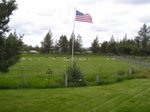


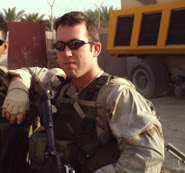










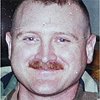


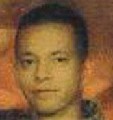









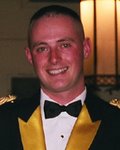






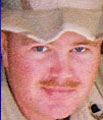
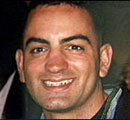





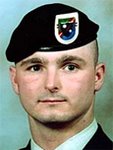




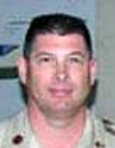
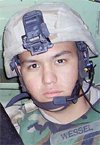
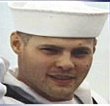
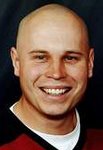
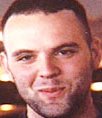
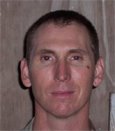


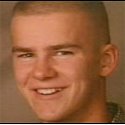
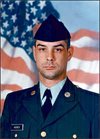


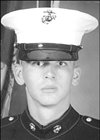
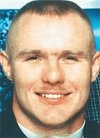
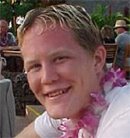

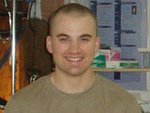




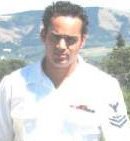

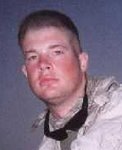
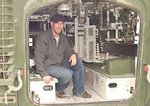
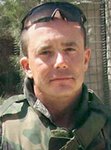

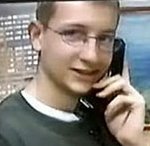

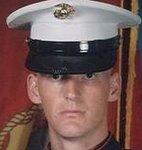
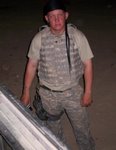
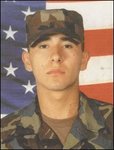
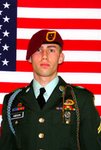

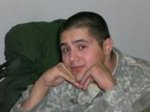
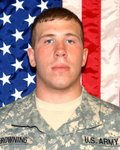





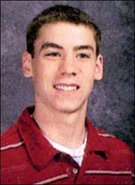
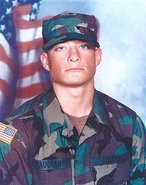
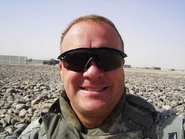
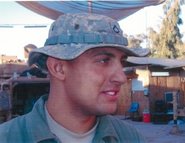
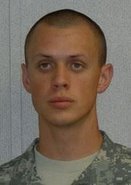
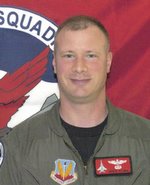
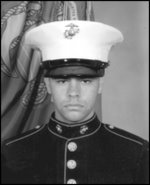
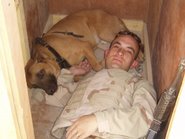
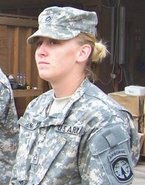
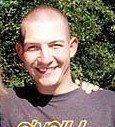
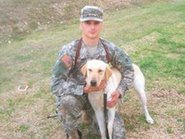

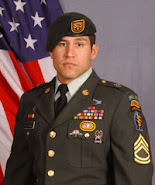

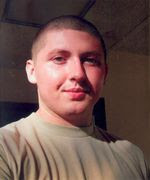



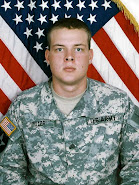
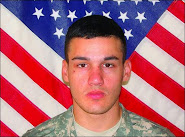



1 comment:
Hi Flag Gazer ~ Nice story about an Aussie serviceman. Thanks for sharing
that with ud. Thanks for visiting my blog. Take care your friend in
Australia, Merle.
Post a Comment